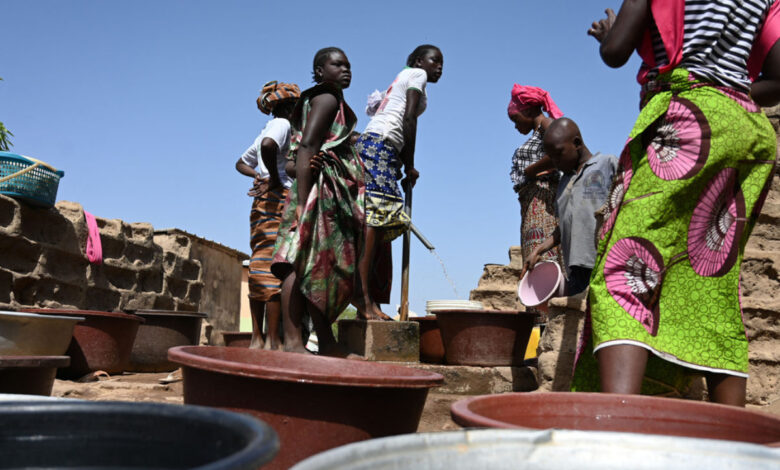300,000 People Affected By Attacks On Water Resources In Burkina Faso
Most destructions have occured in Djibo, a town in northern Burkina Faso, that hosts more displaced people. Locals residing in Djibo currently have access to three litres of water a day to cover all their needs from drinking to hygiene and cooking.

Nearly 300,000 people have been affected by targeted attacks on water points and water trucks, including the purposeful contamination of 32 water facilities in the ongoing ‘water war’ in Burkina Faso.
Hassane Hamadou, Country Director for the Norwegian Refugee Council in Burkina Faso, described the repetitive attacks on water services as unprecedented and not seen elsewhere in the Central Sahel region.
“Disrupting civilians’ access to water is no longer a mere by-product of the conflict, it has become a weapon of war and marks a new, despicable turn in violence. For the sake, dignity, and survival of an already exhausted population, this war on water must stop,” Hamadou said in a press statement released on Tuesday, May 3.
Most destructions have occured in Djibo, a town in northern Burkina Faso, that hosts more displaced people than any other in the country.
Locals residing in Djibo currently have access to three litres of water a day to cover all their needs from drinking to hygiene and cooking which is two times lesser than the 7.5 to 15 litres per day as the WHO’s water requirement for survival per person.
“We have struggled to find enough to eat and drink since we’ve arrived,” said Dicko, a resident of Djibo. “Often, we spend the entire day at the water point only to leave with one jerrycan, and sometimes with nothing. We pay for and drink water that’s very dirty and impure. We can’t even dream of having enough to wash clothes, or ourselves.”
Apart from the attacks on water facilities, civilians on their way to or waiting at water points are reportedly being intimidated and threatened by armed individuals. The attacks have also spread to other regions as well.
On Friday, April 15, 2022, an armed gang set fire to a water truck in the Centre-North region. Assailants have made it clear they did not want to see water trucks on the route again. Currently the only way to provide emergency water assistance, through water trucking services to the residents, have been halted.
Water crisis in Africa
One in three African citizens are impacted by water scarcity and is predicted to reach higher levels by 2025.
Currently, Africa does not only face physical scarcity of water but economic water scarcity which entails inaccessibility due to institutional failings such as lack of planning, investment and infrastructure.
The water scarcity has also been a driver of conflict as worst-hit areas continue to witness violence over the resource. For instance, communities surrounding Lake Chad, have been exposed to violence between those in need of water and those who are unwilling to compromise.
HumAngle has also reported how water scarcity is resulting in spread of endemic diseases, deaths, displacement and destruction of property across the continent.
Support Our Journalism
There are millions of ordinary people affected by conflict in Africa whose stories are missing in the mainstream media. HumAngle is determined to tell those challenging and under-reported stories, hoping that the people impacted by these conflicts will find the safety and security they deserve.
To ensure that we continue to provide public service coverage, we have a small favour to ask you. We want you to be part of our journalistic endeavour by contributing a token to us.
Your donation will further promote a robust, free, and independent media.
Donate HereStay Closer To The Stories That Matter




